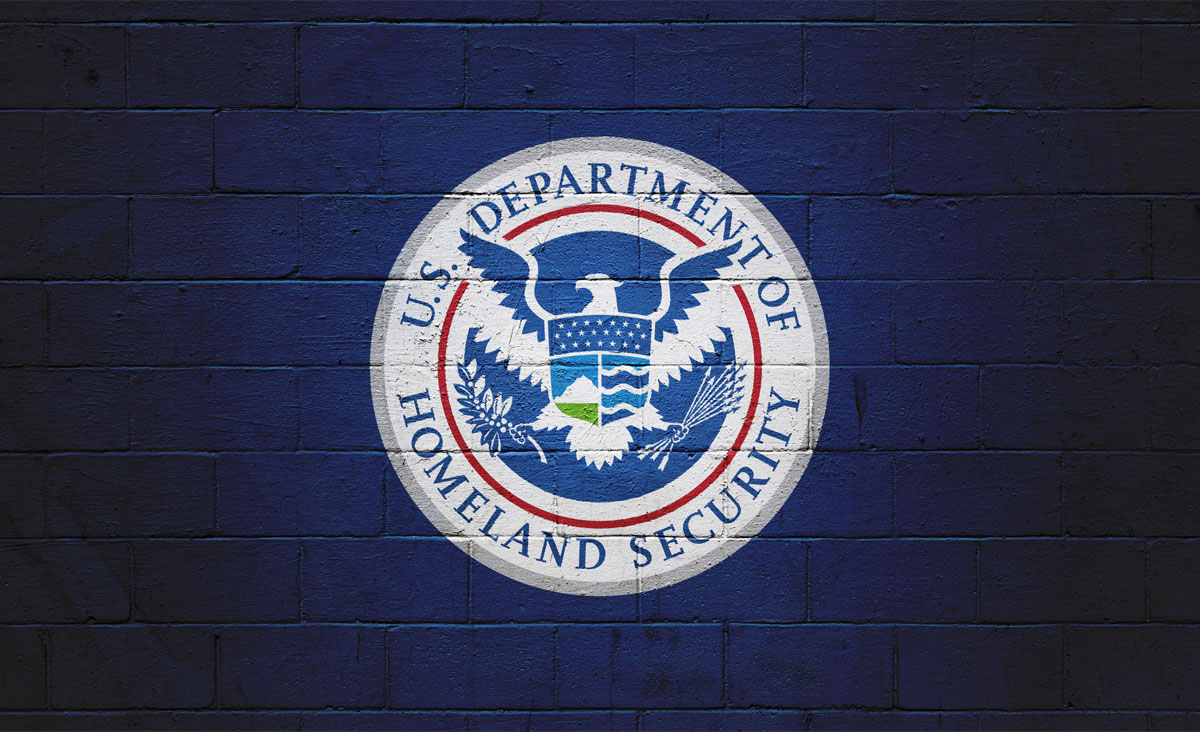Working for the Department of Homeland Security is not as straightforward as it sounds — the DHS is a massive organization and one of the largest employers in the federal government. Broadly speaking, those with jobs in the DHS work to assess, prevent, and mitigate threats posed by natural and human-caused disasters, including terrorist attacks and other threats to national security. This broad but critical mandate means DHS jobs range from border patrol agents to cybersecurity analysts to members of the U.S. Coast Guard.
The wide range of roles from entry-level to senior leadership means there is no single set of requirements for securing a job at the DHS. Many roles do require academic degrees, and universities have evolved to meet the need for qualified professionals by including homeland security as an academic focus. Homeland security degrees are now commonplace at many schools, offering a popular alternative to criminal justice degrees.
So, what can you do with a homeland security degree? In this article, we’ll outline some of the most common homeland security careers.
Homeland Security Jobs
The DHS was created in 2003, combining agencies from numerous other federal departments to more efficiently communicate, share resources, and promote the safety and wellbeing of American citizens. Its role has changed over the years, but in general, DHS work is carried out by 16 different operational and support components, each focused on a particular threat or mission-critical issue within the department.
DHS officials recruit a wide variety of professionals in many industries. As Kristie Canegallo – currently the DHS Chief Operating Officer – stated in an interview, "The breadth of our mission is so significant, that there are so many ways that people can help disaster survivors, try to keep drugs off of our streets, try to help individuals who are looking to make a better life for themselves in the United States."
Disaster Preparedness and Response
One of the most well-known elements of the DHS is the Federal Emergency Management Agency, which manages the federal response to disasters such as floods, wildfires, hurricanes, earthquakes, and so on. Because disaster response can take many forms, from first responders to resource allocation and triage, the roles which FEMA utilizes are diverse.
Working in a disaster response capacity, whether for FEMA or another part of the DHS, depends on your particular role. Firefighters, emergency medical services professionals, and other first responders have specific training procedures and testing. However, some other roles can involve coordinating food and water relief services, working with insurance companies to assess damages, or investigating root causes and recommending mitigation and harm reduction strategies. There is interagency coordination between these roles, which also requires specialized education in the principles of disaster relief and management.
Related: Emergency Management Careers: An Overview
Immigration and Customs
Another large component of the DHS is immigration services, which handles everything from application processing to border enforcement. The three primary organizations which handle these responsibilities are Customs and Border Protection, Immigration and Customs Enforcement, and Citizenship and Immigration Services. Although they have different mandates, each of these groups coordinate extensively, and some of this work can involve other parts of the DHS as well.
Like disaster response, working in immigration can include on-the-ground enforcement and investigation as well as coordination, response, and information-gathering. Many of the individuals employed by these branches work in an enforcement capacity, and their training and career can resemble those of other law enforcement jobs. However, because the enforcement, investigation, threat assessment, and other elements of this work deals with U.S. immigration law, having a background and education in the legal and ethical framework of these laws can also be helpful.
Counterterrorism
One of the key goals of the DHS when it was originally created was to combat the spread of domestic and foreign terrorism, which can take many different forms. Like the other missions, this work often involves the coordination of multiple agencies, including the Cybersecurity and Infrastructure Security Agency, Countering Weapons of Mass Destruction Office, and other groups, such as the Coast Guard.
Many counterterrorism roles are highly analytical in nature — analyzing, identifying, and strengthening weak points in the national supply chain, transit, and other high-risk areas requires a specialized skill set. For this reason, professionals in this field undergo specialized training and education in the field, either during a military deployment or other hands-on application of counterterrorism principles. Many also learn the theory, techniques, and analytical skills through degree programs and certifications before applying what they’ve learned in the field.
Related: Exploring the Department of Homeland Security’s Role in Cybersecurity
Earn Your Degree in Homeland Security at Columbia Southern University
Our programs cover the basic and advanced skills used by DHS officials in many different capacities. There are benefits and considerations to factor in as you plan for a career in homeland security. You can develop critical skills while discovering which elements of the homeland security portfolio interest you most.
If you’d like to know more about our online homeland security degree programs, visit our program page.
Multiple factors, including prior experience, geography, and degree field, affect career outcomes. CSU does not guarantee a job, promotion, salary increase, eligibility for a position, or other career growth.






